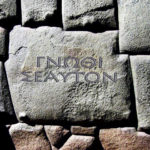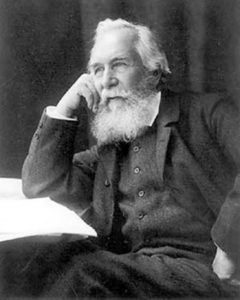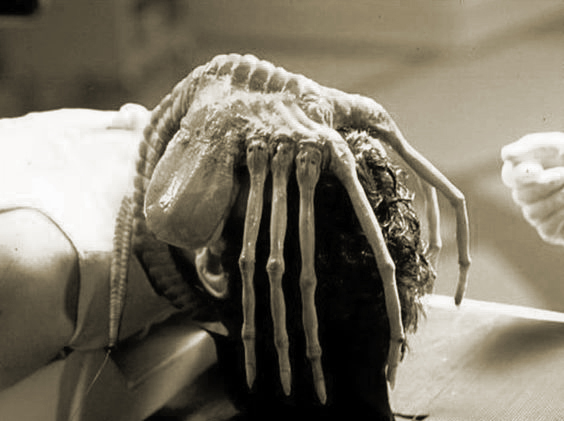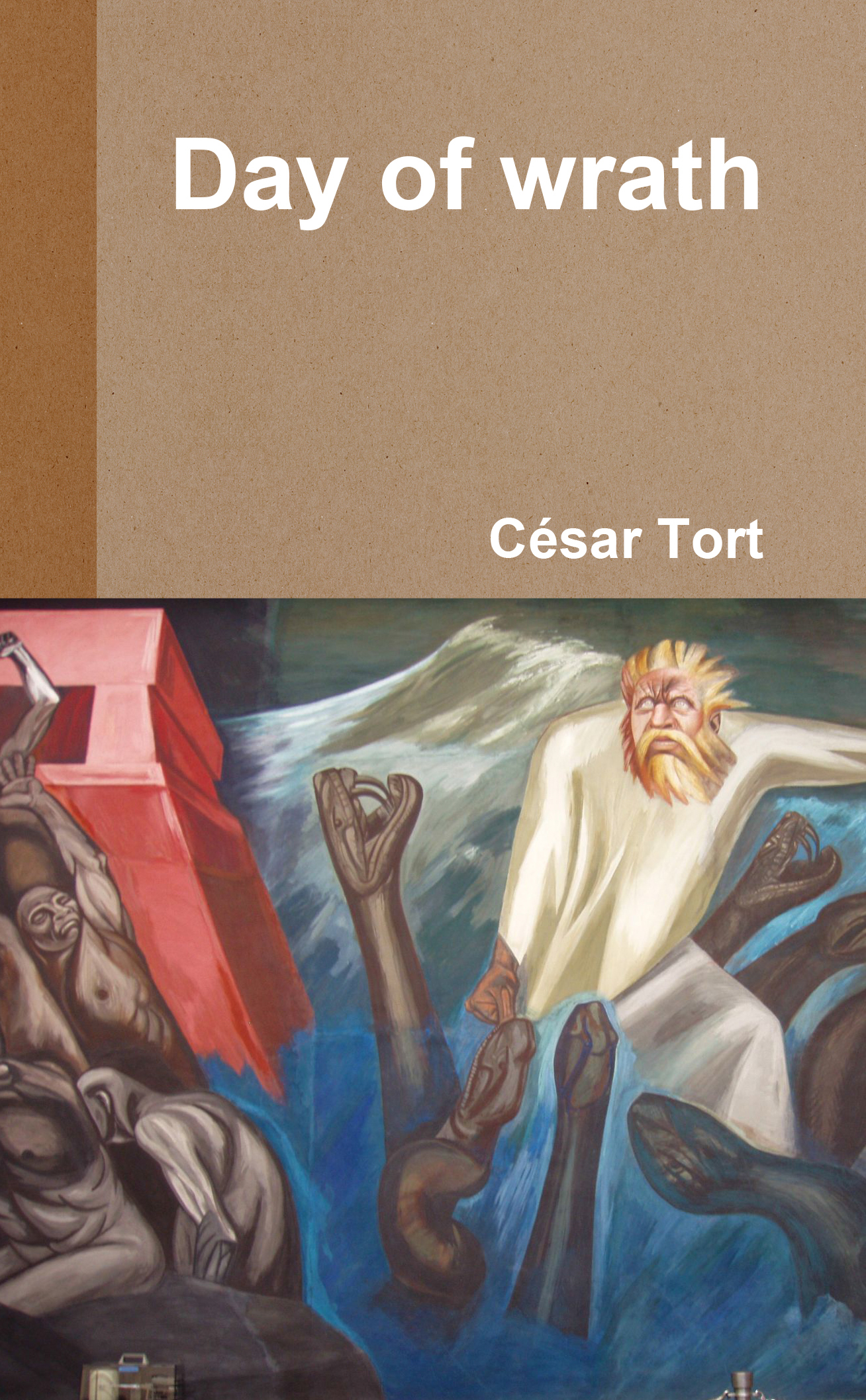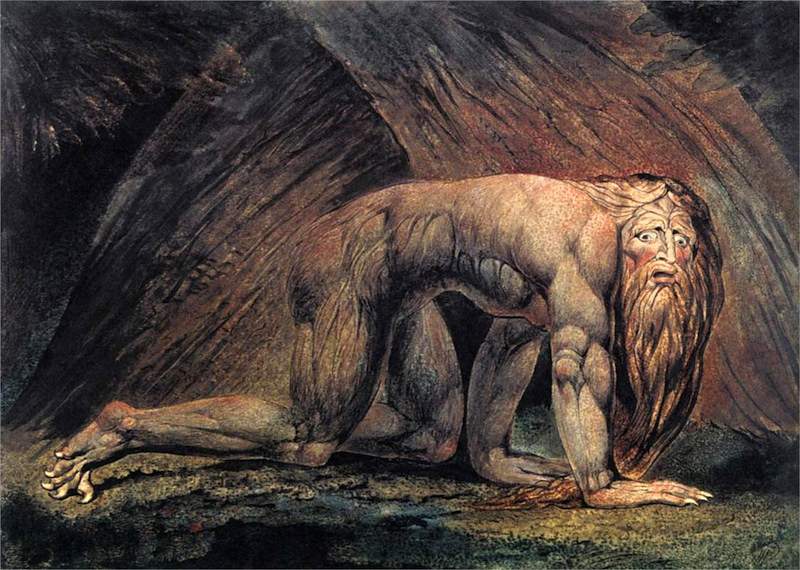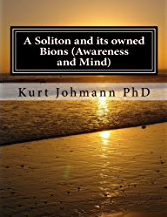On April 10, 1923, Hitler fulminated, “The liberation [of Germany] requires more than diligence; to become free requires pride, will, spite, hate, hate, and once again, hate.” A year earlier, he told a Munich crowd, “Christianity prescribes to us faith, hope and love. Love and hope cannot help us; only faith can, because it begets the will.” Hitler preached hate, spurned Christian love, and later ordered the murder of millions of innocent [sic] people, including Jews, Gypsies, Slavs, and people with disabilities.
______ 卐 ______
Note of the Editor: This is where we see the gulf between me and not only the author of Hitler’s Religion, but with white nationalists who don’t know how to hate to the point of becoming exterminationists.
______ 卐 ______
The notion that Hitler was a Nietzschean promoting an aristocratic morality and spurning the so-called slave morality of Christianity was a position already popularized in the 1930s and 1940s by Hermann Rauschning, a Nazi leader who jumped ship well before Hitler launched his war of aggression and genocide. Rauschning became a vociferous critic of Hitler from exile. On the basis of his personal contacts with Hitler, he claimed Hitler was an “Antichrist” waging a “deliberately planned battle against the dignified, immortal foundation of human society; the message from Mount Sinai.” Rauschning called this “Hitler’s Battle Against the Ten Commandments.” According to Rauschning, Hitler said he was fighting against “the curse of so-called morals, idolized to protect the weak from the strong in the face of the immortal law of battle, the great law of divine nature. Against the so-called ten commandments [sic], against them we are fighting.” Rauschning’s work is controversial and must be used cautiously, because he is not always accurate in his description of Hitler’s religious and philosophical stance. Nonetheless, it is interesting he intimated that Hitler’s religious position was either pantheistic or at least close to pantheism, since he put the words “divine nature” in Hitler’s mouth. He also testified that Hitler stated, “For our Volk it is decisive, whether they uphold the Jewish Christian faith with its morality of sympathy, or a strong heroic faith in God in nature, in God in one’s own Volk, in God in one’s own destiny, in one’s own blood.”
More recently, the German philosopher Gunnar Heinsohn has taken Rauschning’s position even further, arguing that the reason Hitler wanted to annihilate the Jews was to extinguish their moral teaching promoting the sanctity of life. No doubt Heinsohn is correct when he explains that Hitler embraced a social Darwinist position that was the polar opposite of Judaism’s ethics, which forbade murder and enjoined loving one’s neighbor. However, the problems with Heinsohn’s position are legion. First, most Christians believe in the Ten Commandments, too, and the prohibition against murder is just as pronounced in the Christian tradition as in Judaism, so why didn’t Hitler kill all Christians in his zeal to eliminate this ethical code?
______ 卐 ______
Note of the Editor: As Savitri Devi said, Hitler was one thing, Kalki will be another…
______ 卐 ______
When Hitler pursued policies that most of us consider evil, he was not, in his mind, abandoning moral considerations. On the contrary, he was convinced that what he was doing was not only morally justified, but morally praise-worthy.
I argued this point extensively in my previous book, Hitler’s Ethic: The Nazi Pursuit of Evolutionary Progress, where I identify Hitler’s ethical position as a racist form of evolutionary ethics. Hitler believed that whatever promoted evolutionary progress was morally good, and anything that hindered progress or led to biological degeneration was reprehensible. In his view, any moral system, code, or commandments must be judged according to how it contributes to the biological advancement (or regression) of humanity. His belief that the Aryan or Nordic race was superior to all other races led him to this corollary: Whatever benefits the Nordic race is moral. Wolfgang Bialas’s recent analysis of Nazi ethics agrees largely with this interpretation of Hitler’s thought. Bialas states, “The Nazi worldview clearly had an ethical dimension, rooted in notions of an evolutionary ethic that legitimized the struggle for existence.” Indeed, so many historians have argued that social Darwinism was a central tenet of Nazi ideology that this idea is considered commonplace.
Since Hitler based his ethical views on natural laws, especially evolutionary laws, this means that Christian ethics were not sacrosanct. Some elements of Christian morality might, in Hitler’s view, comport with the laws of nature and thus be valid. Other Christian commandments, however, needed to be discarded as relics of the benighted, prescientific past. Indeed, many historians have noted the fundamentally anti-Christian thrust of Hitler’s ethics. Alan Bullock, an early biographer of Hitler, explains, “In Hitler’s eyes Christianity was a religion fit only for slaves; he detested its ethics in particular. Its teaching, he declared, was a rebellion against the natural law of selection by struggle and the survival of the fittest.” Another biographer, Joachim Fest, notes that Hitler wanted to replace Judeo-Christian morality with the “indubitable will of Nature.” Claudia Koonz, in her insightful study titled The Nazi Conscience, argues that Nazism preached and practiced a coherent moral ideology that was an “absolutist secular faith” contrary to Christianity. The Holocaust historian Robert Wistrich also stresses the anti-Christian character of the Nazi moral vision, stating, “For at the heart of Nazism, despite its cunning pretense of ‘positive Christianity,’ there was a deep-seated rejection of the entire civilization that had been built on Judeo-Christian ethics.” Ulf Schmidt, who specializes in the history of medicine and medical ethics under Nazism, likewise interprets Nazi ideology as a departure from Christian moral teaching. He asserts, “Nazism reveals a fundamental break with Judeo-Christian ethics, an attack against a traditional belief system based on altruism and compassion”…
By the time he made this statement in October 1941, German physicians following his orders had murdered over 70,000 Germans with disabilities, and German killing squads operating in Soviet territories had massacred multitudes of Jews and communist officials…
Another way that Hitler’s morality diverged from Christian norms was that he ignored or reinterpreted what Jesus called the most important commandment: “You shall love the Lord your God with all your heart, with all your soul, and with all your strength.” Hitler did love nature, so perhaps in some sense he did love his pantheistic God. However, Jesus was quoting from the Old Testament, where the Lord specified was Yahweh. Hitler certainly did not love that God, whom he identified as the God of the Jews.
Further, Hitler continually insisted that God was inscrutable and unknowable, unlike in Christianity, where one could cultivate a personal, loving relationship with Him. One cannot communicate with the impersonal kind of God that Hitler believed in. (I do not give much weight to Hitler’s public invocations to God in his speeches, since they seem to have been intended for his audience, not as a sincere effort to communicate with God.) In any case, Hitler never encouraged people to love God and cultivate a relationship with Him, so whatever positions he took on other questions of ethics, he missed the central tenet of Christian morality…
What Hitler thought he discovered through reason was that nature was ruled by the struggle for existence, and humans could not escape this natural law. He believed that the struggle for existence had produced everything, including humanity, and would continue to lead to biological progress. Gilmer Blackburn expresses a view widely shared by historians when he explains the primacy of struggle in Hitler’s worldview: “If the Nazi dictator entertained convictions that could be termed ‘religious,’ his creed began and ended with the struggle for existence.” In Hitler’s view, then, morality consisted of submitting to the universal law of the struggle for existence by fighting one’s enemies and triumphing—or else perishing —in the contest. Only through this struggle could humanity thrive and progress. Trying to evade the struggle would only lead to decline and biological degeneration.
______ 卐 ______
Note of the Editor: What to make of the pacifism of Greg Johnson and other white nationalist pundits, for whom the concept of Holy Racial Wars is anathema?
______ 卐 ______
He then scoffed at those who thought they could contravene the laws of nature and extinguish the instinct for preservation: “For only then [if the self-preservation instinct could be eliminated] could one try to implement the statutes of a League of Nations or the Geneva Convention, in the place of the law of the all-powerful nature (Allgewalt Natur) that has been valid since the beginning of all life on this earth.” He then asserted that the “unbreakable laws of nature” will continue to hold sway over the struggle for existence between humans in the future. Hitler’s use of the term “all-powerful nature” (Allgewalt Natur) implies pantheism, since it ascribes to nature a characteristic—omnipotence— exclusive to deity. Further, he clearly invoked natural laws, especially the struggle for existence, as the arbiter of morality…“Whether man agrees to or rejects this harsh law makes absolutely no difference,” he said. “Man cannot change it; whoever tries to withdraw from this struggle for life does not erase the law but only the basis of his own existence”…
Hitler deduced two key principles from the need to wage the struggle for existence: the right to destroy those who are weaker and the right to take living space, i.e., land, from them. These themes reverberate through many of Hitler’s speeches and writings, and found their ultimate fulfillment in his genocidal policies during World War II…
In another passage in Mein Kampf which addresses the need to promote population expansion, he articulated the social Darwinist perspective that this process would result in the weak perishing in the competition for limited resources… He then spelled out the consequences of his pro-natalist policy more clearly: “A stronger race will drive out the weak, for the vital urge in its ultimate form will, time and again, burst all the absurd fetters of the so-called humanity of individuals, in order to replace it by the humanity of Nature which destroys the weak to give his place to the strong”…
In the struggle for existence in nature, many organisms are exterminated, so, Hitler queried, why should we suppose that this would be different for human races, some of which are not far separated from apes? Hitler warned against moralizing about this struggle or the destruction of the inferior creatures of the earth (such as other human races), stating, “On this earth the right of the stronger holds sway, the right of struggle and the right of victory; if you think that rights prevail, then you are deceiving yourself.” The struggle is good in itself, Hitler claimed, because it prevents degeneration, which would otherwise occur…
During World War II, Hitler continually justified his genocidal policies by appealing to the laws of nature, especially in “secret speeches” given to military cadets and officers. (Some of these “secret speeches” had thousands in attendance; in this respect, they were hardly secret. However, they are called “secret speeches” because they were not open to the general public and not published at the time, as many of Hitler’s speeches were.) In May 1944, Hitler lectured his military leadership about the reasons they needed to be relentlessly harsh in the war. Hitler insisted that nature knows nothing of tolerance, but rather eliminates the weak:
“There is no tolerance in nature. Nature is, if I take ‘tolerant’ as a human concept, the most intolerant thing that has ever existed. It destroys everything that is not capable of living, that will not or cannot defend itself; it eliminates them…”
Later in this speech, Hitler broached the topic of his harsh anti-Jewish policies, and though he did not specifically mention the mass extermination of the Jews, he certainly implied it. He insisted that his policy of “driving out” the Jews was “just as nature does it, not brutal, but rational, in order to preserve the better ones [i.e., the Germans].” He then answered those who might wonder if this could have been accomplished in a less cruel fashion: “We stand in a struggle for life and death.” Anything that helped the Aryans preserve their race in this struggle was morally right, Hitler informed them. Thus, cruelty, oppression, murder, and even genocide were morally justified, in his view, if they advanced the cause of the German people.
During his Nuremberg Party Congress address in 1929, Hitler indicated one of the corollaries to his view that the strong should prevail over the weak: infanticide for those deemed inferior. He hoped to take the “natural process of selection” into his own hands if he came to power by “acting deliberately according to racial laws.” He then praised Sparta for having practiced infanticide, and he criticized modern European societies for setting up institutions to care for the weak and sickly…
By killing approximately 200,000 disabled Germans during World War II, Hitler thought he was pleasing God.
When Hitler spoke about the triumph of the stronger in the struggle for existence, he was of course rooting for the home team: the German people, whom he believed to be racially superior, because they had substantial portions of so-called Aryan or Nordic racial elements in their blood. Though at times Hitler called the German Volk a creation of God and indeed “the highest image of the Lord,” on many other occasions he actually deified the German Volk. In his May Day speech in 1923, he told his audience that National Socialists needed to learn to love their Fatherland and Volk with a fanatical love that “allows no other idols beside it.” Seeing divinity in the German Volk is consistent with a pantheistic view, where God pervades everything.
Hitler’s devotion to the German Volk was in some ways even more pronounced than his devotion to the inscrutable God, because the German Volk was closer at hand. Hitler never quite figured out how to worship his unknowable Providence, but he did find ways to serve the German people (or, at least, he thought he was serving them). He often claimed that the German Volk was supreme on this earth and the object of his complete faith and commitment. In October 1935, he denied that he was subject to anyone except his own conscience. Then he continued, “And this conscience has but one single commander (Befehlsgeber): our Volk!” Two days earlier, he made a similar statement: “The Volk alone is our Lord (Herr), and we serve this Volk according to our best knowledge and conscience.” Both these statements would be blasphemous for anyone believing in a monotheistic god that transcends the German Volk. If Hitler had been a monotheist, he should have confessed God as the commander of his conscience, not the Volk. If he were a Christian, he should have confessed Jesus as his Lord.
______ 卐 ______
Note of the Editor: If white nationalists had their race as their God and not Jesus, they would celebrate Uncle Adolf’s birthday every April 20, not Jesus’ putative birthday. Think of Parrish’s Daybreak painting on this site to see what we mean by God: not just any kind of life but the most sublime, including majestic Nature.
______ 卐 ______
Just a few days after he came to power in February 1933, he preached to his fellow Germans that the Volk was the highest value they could pursue. They were engaged in a struggle in which the goal was “the preservation of this Volk and this soil, the preservation of this Volk for the future, in the realization that this alone can constitute our reason for being”…
Hitler served a God and cultivated a conscience that did not care if some people were exterminated in the global struggle for existence. His God only cared about the strongest, the ablest, and the most intelligent—and Hitler was convinced that the German people embodied these traits better than any other race.
______ 卐 ______
Editor’s note: If the Western traitors had not thrown so much manure on Hitler’s memory, his words and not those of David Lane would be our sacred words, as Adolf’s precede Dave’s.
______ 卐 ______
How did Hitler’s vision of the supremacy of the German Volk and his utter disregard for other peoples fit into the Christian command to love your neighbor as yourself, which Jesus called the second most important commandment?… Hitler’s insistence that Germans should hate or harm their racial enemies, rather than love them, demonstrates once again his opposition to Christian morality…
When Hans Frank asked Hitler what he read at the Western Front during World War I, Hitler replied that at first he read the Gospels. Later, he gladly set them aside, he said, in part because “the story about turning the other cheek, when one receives a blow, is not a good prescription for the Front.” In December 1941, Goebbels recorded in his diary that Hitler rejected Christianity because of its Sermon on the Mount morality.
Christianity, Hitler claimed, “is Jewish in its entire essence. A religion that proceeds from the principle that one should love his enemies, may not kill, and must offer the left cheek when struck on the right one, is not suitable for a manly doctrine of defending one’s Fatherland. Christianity is in fact a doctrine of decay. For a modern person it deserves only intellectual disdain.”
Hitler’s contempt for Christian morality, including some of the Ten Commandments (such as the prohibition on killing), was palpable. Certainly many versions of Christianity had interpreted loving one’s enemies and turning the other cheek in such a way that did not apply to many areas of life, such as warfare. However, no one committed to Christian morality would directly criticize a commandment of Jesus—or one of the Ten Commandments—as Hitler did.
Not only did Hitler not consider other races part of the same moral community with the German Volk, but he also construed them as competitors in the racial struggle for existence. Thus he held that destroying people of other races is not only morally permissible, but morally good and right…
In 1933, Hitler could not publicly spell out what suppressing other races meant, because he was still trying hard to deceive the world into thinking he was a man of peace so he could remilitarize without outside interference. However, after the genocidal war on the Eastern Front was in full swing, Hitler divulged his racial philosophy in all its brutality to his entourage. In a monologue in October 1941, Hitler expounded his philosophy of conquest and racial annihilation. He planned to sift through the people in the conquered territories of the East to find racially desirable elements that could be preserved. However, Russians living in the cities “must completely die off. We need not have any pangs of conscience about this,” because “we do not have any responsibility toward these people.” The Germans’ task, Hitler asserted, was to settle these territories with Germans and treat the natives as American Indians had been treated.
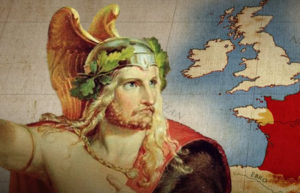
Hitler denied, however, that he had any hatred for these people. Rather, he was acting with cool deliberation. He remarked, “I am approaching this matter ice-cold. I feel that I am only the executor of a historical will [i.e., a will guiding historical development]”… Hitler asserted: “Heaven only recognizes power.” He then sarcastically dismissed the “principle that all humans should love one another”…
Hitler considered expansionist warfare a part of the God-ordained racial struggle. This was a constant theme in Mein Kampf and in many of his speeches, especially during World War II. It was also the primary message of his Second Book, where he claimed that the earth is not given once and for all to anyone, but rather is on loan from Providence to those courageous enough to take possession of it and strong enough to hold onto it. Once again, Hitler thought the stronger race had God on its side, even as it crushed the weaker. “Therefore,” he asserted, “every healthy native people sees nothing sinful in the acquisition of land, but rather something natural.” The “modern pacifist,” he continued, “who repudiates this most holy right” lives off past injustices.
______ 卐 ______
Editor’s note: Once more: Johnson et al…
______ 卐 ______
In a December 1940 speech, Hitler enunciated similar social Darwinist themes that virtually quoted from his Second Book and reiterated major points he made in Mein Kampf. People ignore these wise but harsh laws at their peril, according to Hitler, because those not strong enough to prevail in the struggle have forfeited their right to exist.
In a monologue in October 1941, Hitler contrasted his philosophy of expansionist warfare with Christianity. He presented war as essentially a struggle over land and resources, and, as he did so often in other venues, justified killing in warfare by appealing to the pitiless struggle in nature. War, he stated, “corresponds to the principle in nature, ever to bring about selection through struggle: The law of existence demands uninterrupted killing, so that the better will live. Christianity is rebellion against this fundamental principle, a protest against the creation; followed consistently, it would lead to the breeding of the inferior”…
Hitler’s belief that nature imposed a moral imperative to expand the population had profound implications for his views on sexual morality. His pro-natalist sexual morality had some points of contact with traditional Christian views, since the Catholic Church opposed contraception, abortion, prostitution, and homosexuality. However, Hitler’s opposition was based on entirely different premises. Hitler only opposed them to the extent that they interfered with increasing the number of healthy Nordic babies, which was the ultimate goal of his sexual morality. In the case of contraception and abortion, Hitler favored contraception and abortion for those deemed biologically inferior. In July 1933, Hitler passed a decree that resulted in the compulsory sterilization of about 350–400,000 Germans with disabilities. While prohibiting abortion for healthy Germans, abortions for Germans with disabilities were required, and Jews and other racial “undesirables” were allowed to practice abortion.
One of the most important commandments in Hitler’s sexual morality was thou shalt not mix your blood with other races. While the Catholic Church forbade intermarriage between Catholics and non-Catholics, Hitler forbade intermarriage and sexual relations between Germans and Jews, regardless of their religious convictions.
______ 卐 ______
Note of the Editor: As my ancestors were Spanish, I am fascinated by the origins of the tragedy of ancient Hispania. When the values were standing, the Visigoths burned at the stake those who interbred with the Iberian mudbloods. That all changed with what the Visigothic king Recceswinth did, who, being duped by the Christians, transvalued the most vital value: from trying to keep the bloodline pure to what would become in Spain the burning at the stake of heretics. The astronomic blunder of Recceswinth dates back to the 7th century. Weikart, as a good Christian, lives under the sky of the inverted values bequeathed to us by Christianity; so in this passage, and his book in general, he sees everything in a photographic negative (as does every Christian and neochristian in the West who condemns Hitlers’ eugenics).
______ 卐 ______
For Hitler, it was a sin— punishable by law after the Nuremberg Laws were promulgated in 1935— for a Catholic of Aryan descent to marry a Catholic with Jewish grandparents. Hitler also forbade intermarriage of Germans with Slavs but encouraged German intermarriage with the Norwegians or Dutch, because they were deemed fellow Nordic peoples…
Goebbels noted that Hitler was not prudish but viewed sexual morality from an entirely different perspective than Christians did. Hitler thought, “We must also view this question [sexual morality] from the standpoint of its utility for the Volk. That is our morality.” The main point, according to Hitler, was to get as many children as possible for the Volk.
Because he favored marriage and procreation, Hitler was incensed that the Catholic Church taught celibacy for priests and nuns. In his view, this robbed the German people of its potential and weakened it in its struggle with other races. In October 1941, Hitler lamented that Catholicism encouraged some women to forgo marriage. However, even more important than marriage, Hitler intoned, was that women bear children: “Nature doesn’t care at all, whether before-hand a declaration is made in the presence of witnesses! Nature wants the woman to have a child.” This demonstrates once again that, for Hitler, nature dictated morality. In this case, the morality it dictated was that extramarital sexual relations were perfectly fine, as long as they resulted in more healthy German babies.

